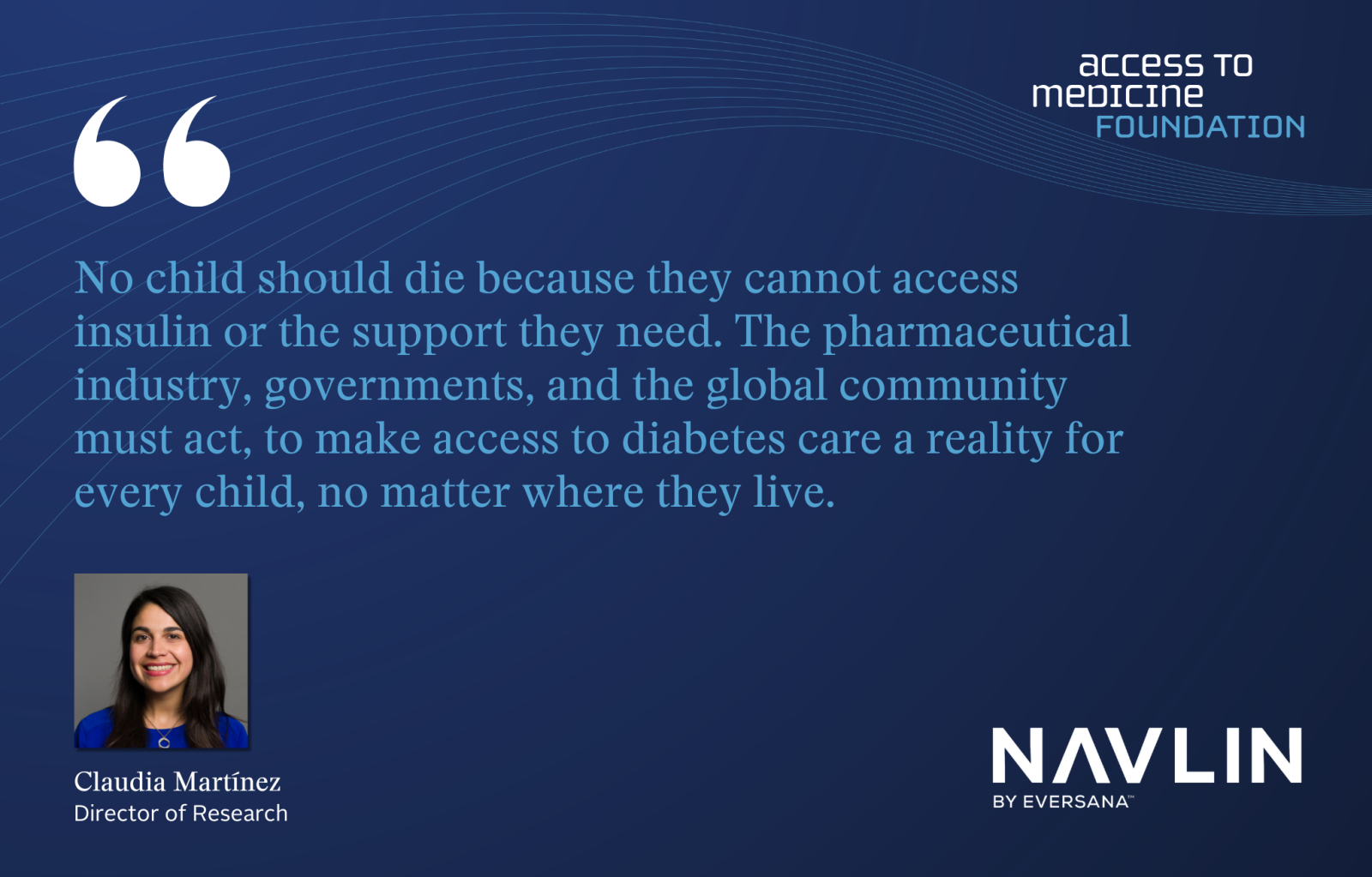Date
30 June 2025
Op-ed: We need more robust solutions for diabetes
Direct links

Martínez outlines how, while children with type 1 diabetes (T1D) in high-income countries can expect to live long and healthy lives, many in low- and middle-income countries (LMICs) are still being misdiagnosed, diagnosed too late, or left without reliable access to insulin and essential monitoring tools.
She highlights 11 initiatives from pharmaceutical companies Eli Lilly, Novo Nordisk, Sanofi and Biocon, currently operating across 71 LMICs, as analysed in the Foundation’s recent report. These programmes offer a range of support – from free insulin and supplies to patient education and health worker training – often serving as the only form of diabetes care in some areas.
Yet Martínez points out that these initiatives currently reach less than 10% of the estimated 825,000 children in need. Most are dependent on donations and have defined end dates, raising urgent questions about sustainability, especially as young people transition out of paediatric care.
She calls on pharma companies to expand their reach, ensure affordability of a wider range of insulin products and delivery devices, and collaborate with governments to build sustainable national systems. Governments, in turn, must act to integrate diabetes care into health plans and move away from dependence on external aid – with countries like Tanzania already showing progress.
Martínez ends with a clear call: no child should die from a manageable condition. With coordinated action, the industry and governments can close the care gap, and make insulin access a reality for every child, everywhere.
